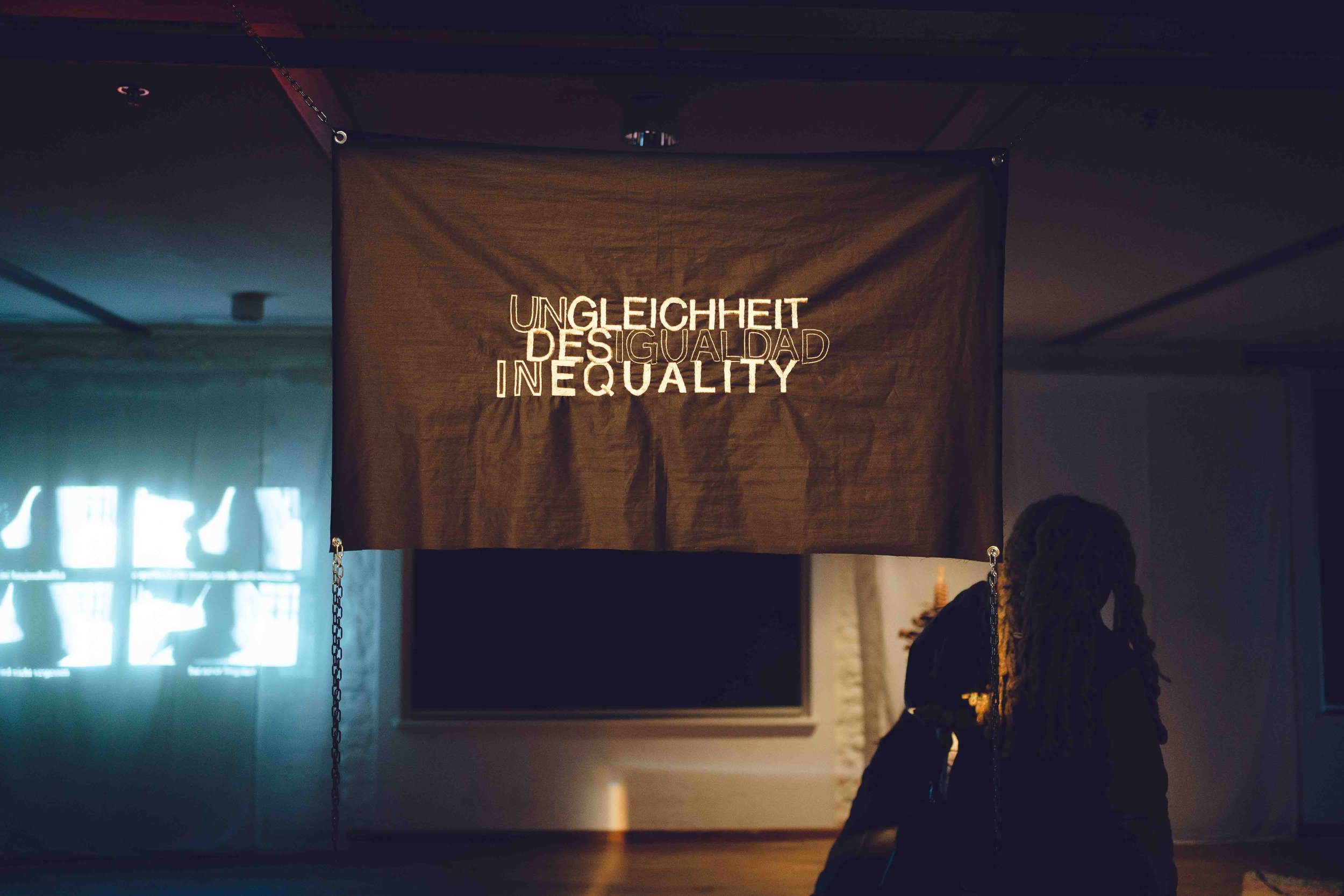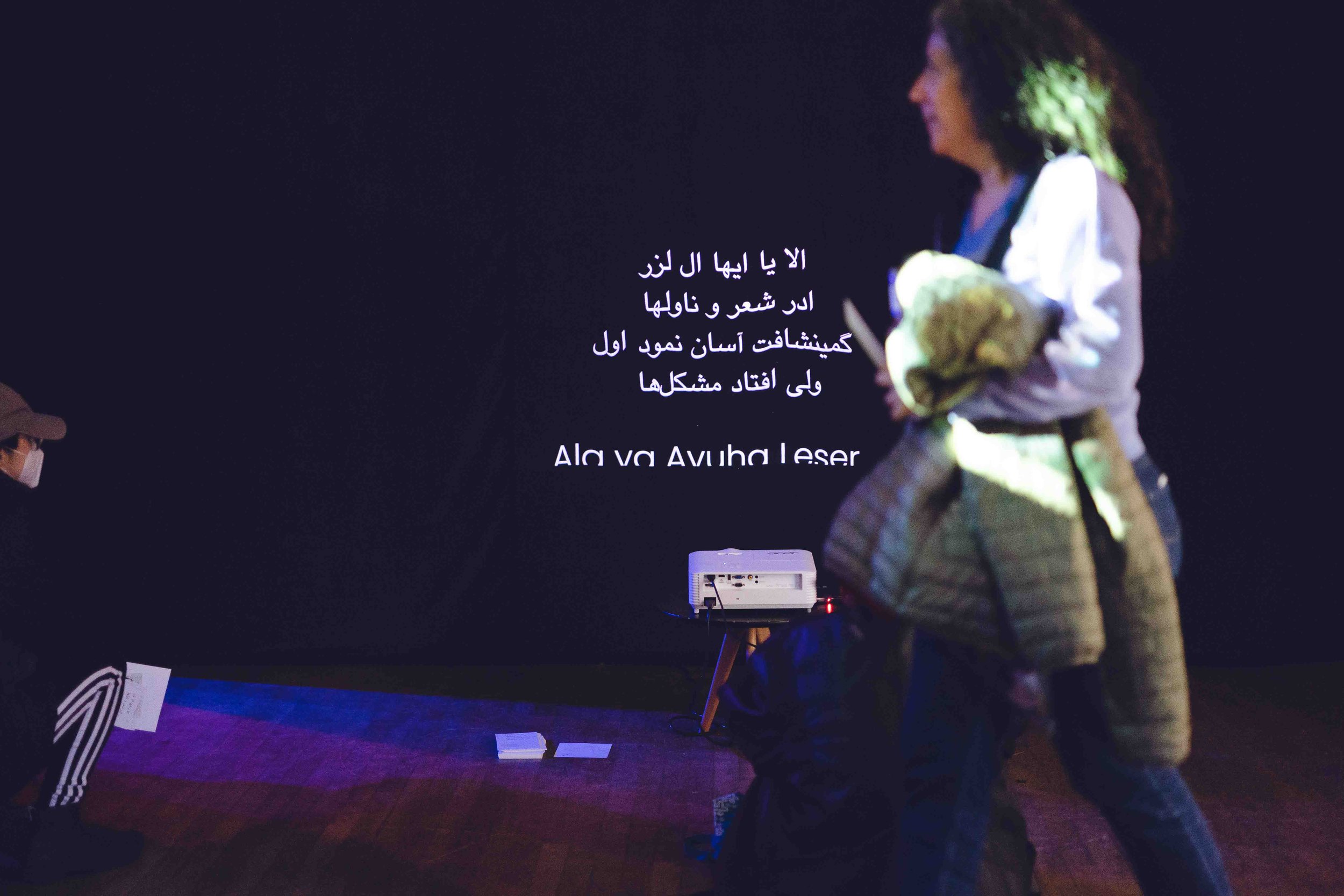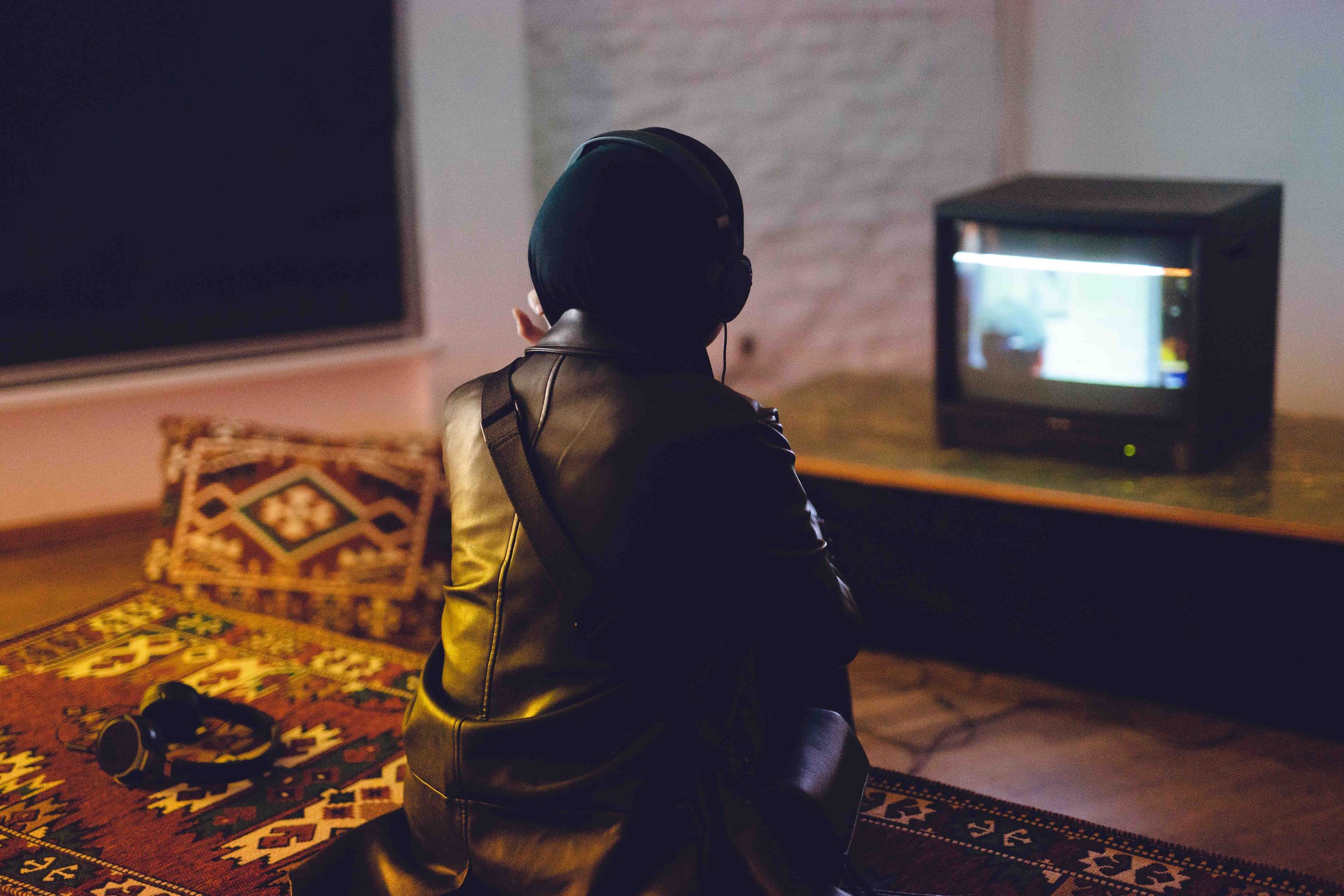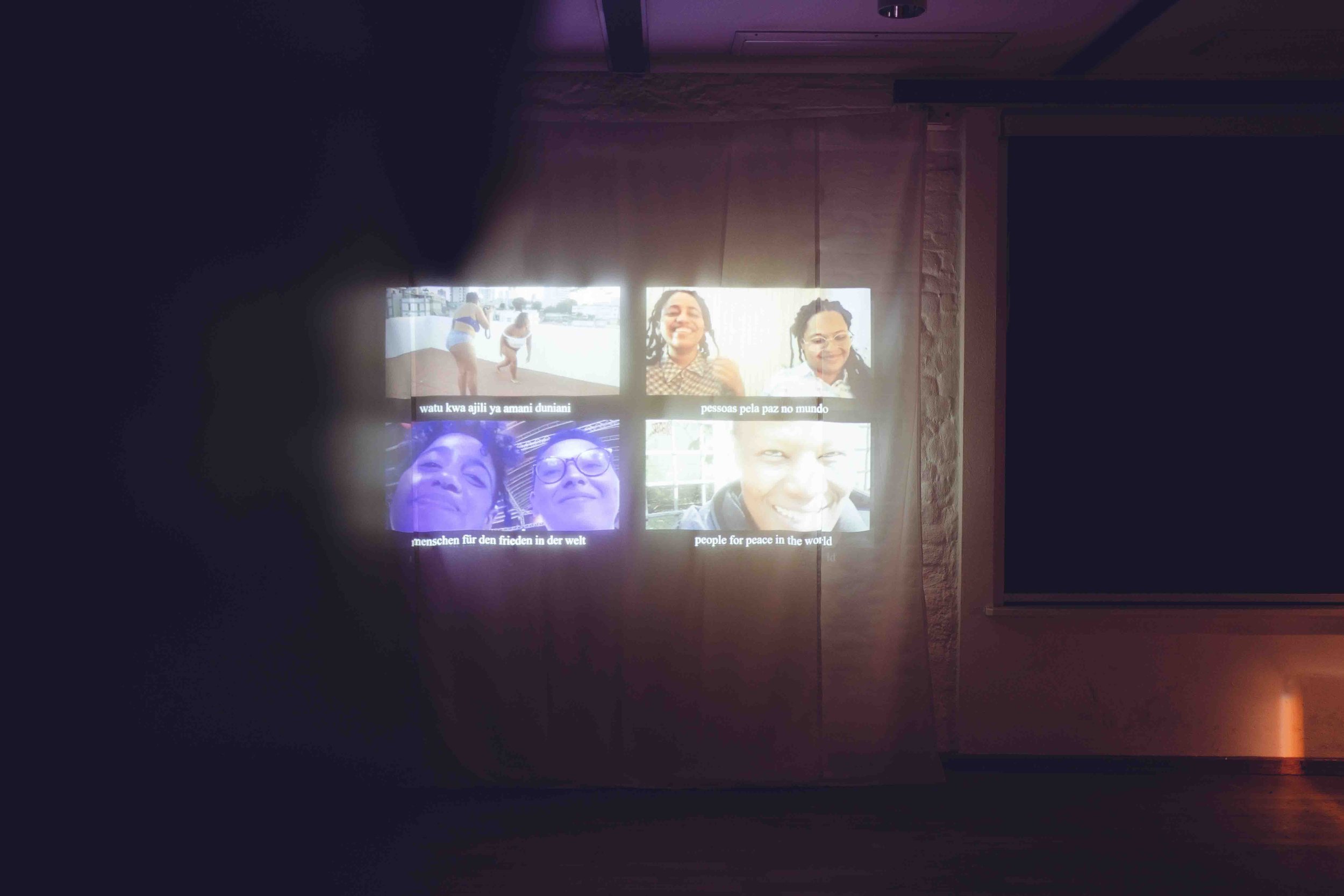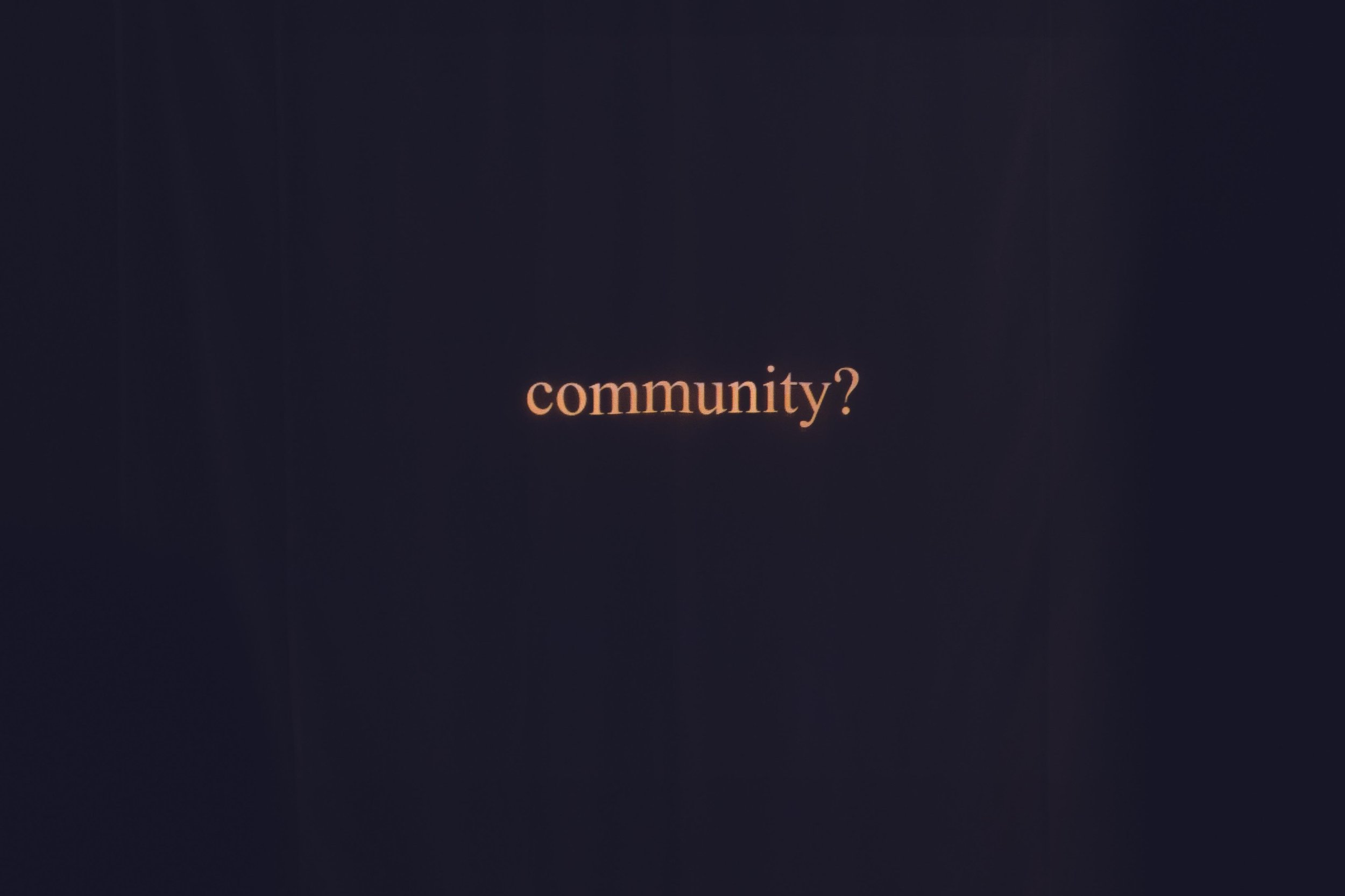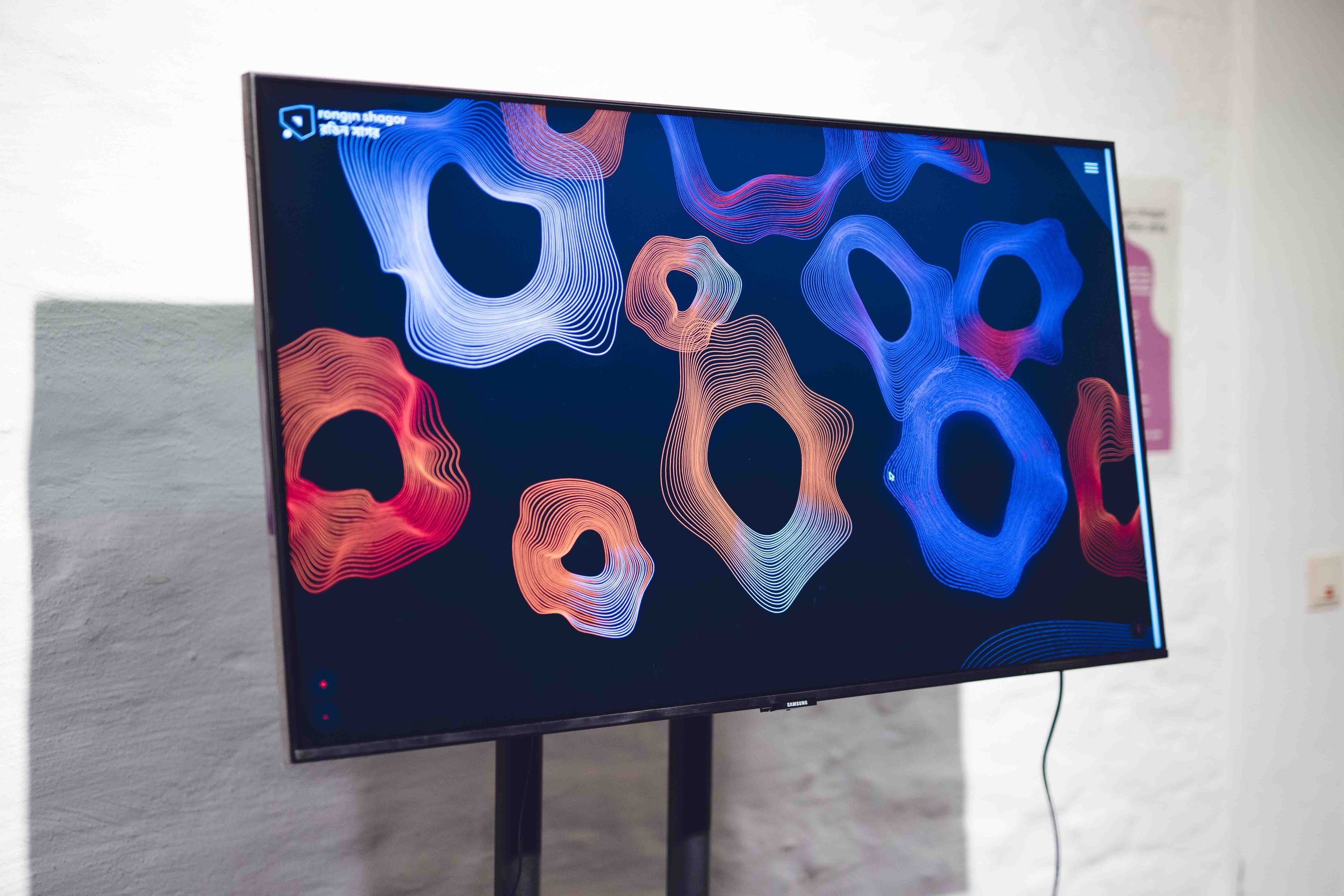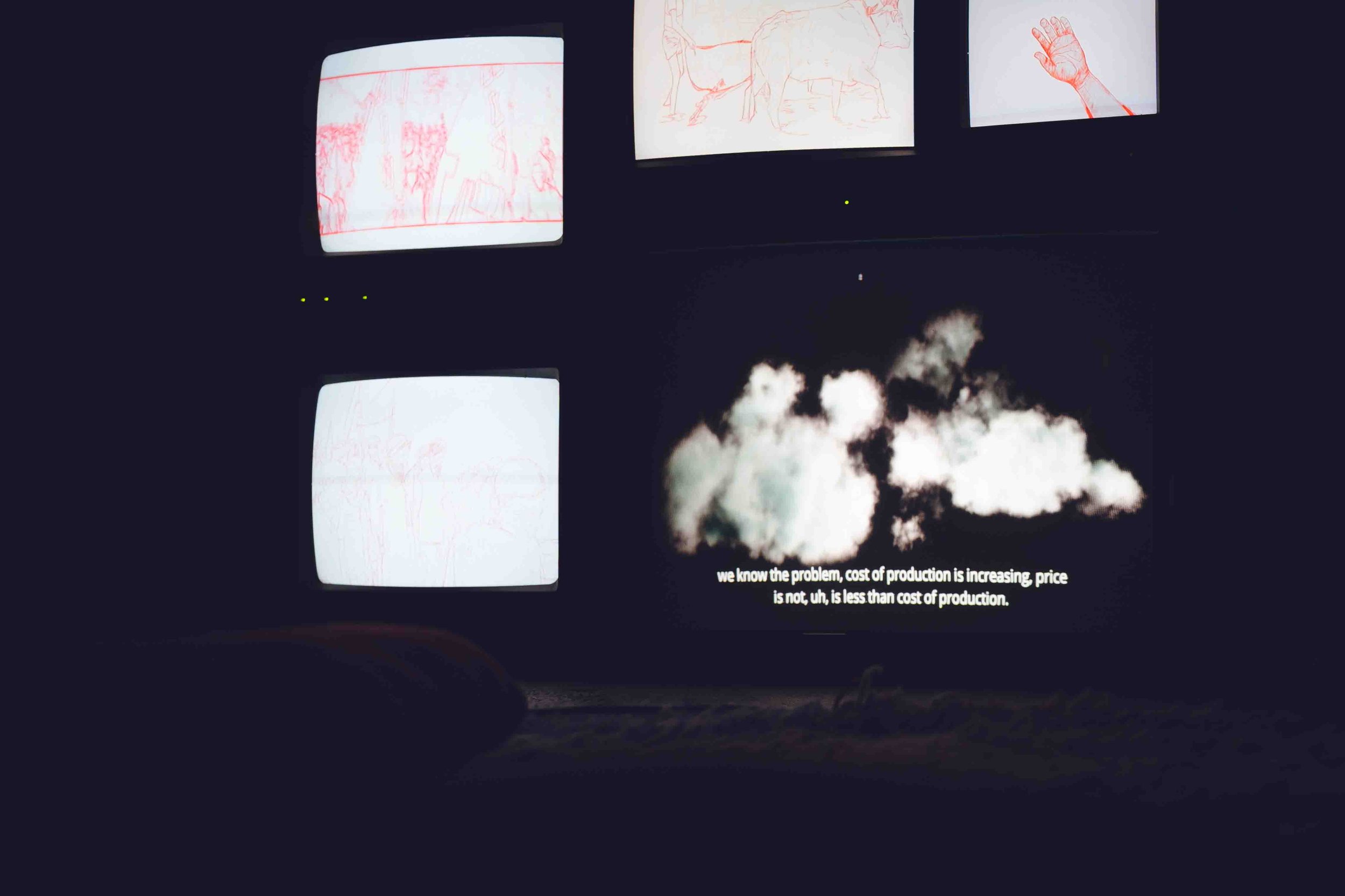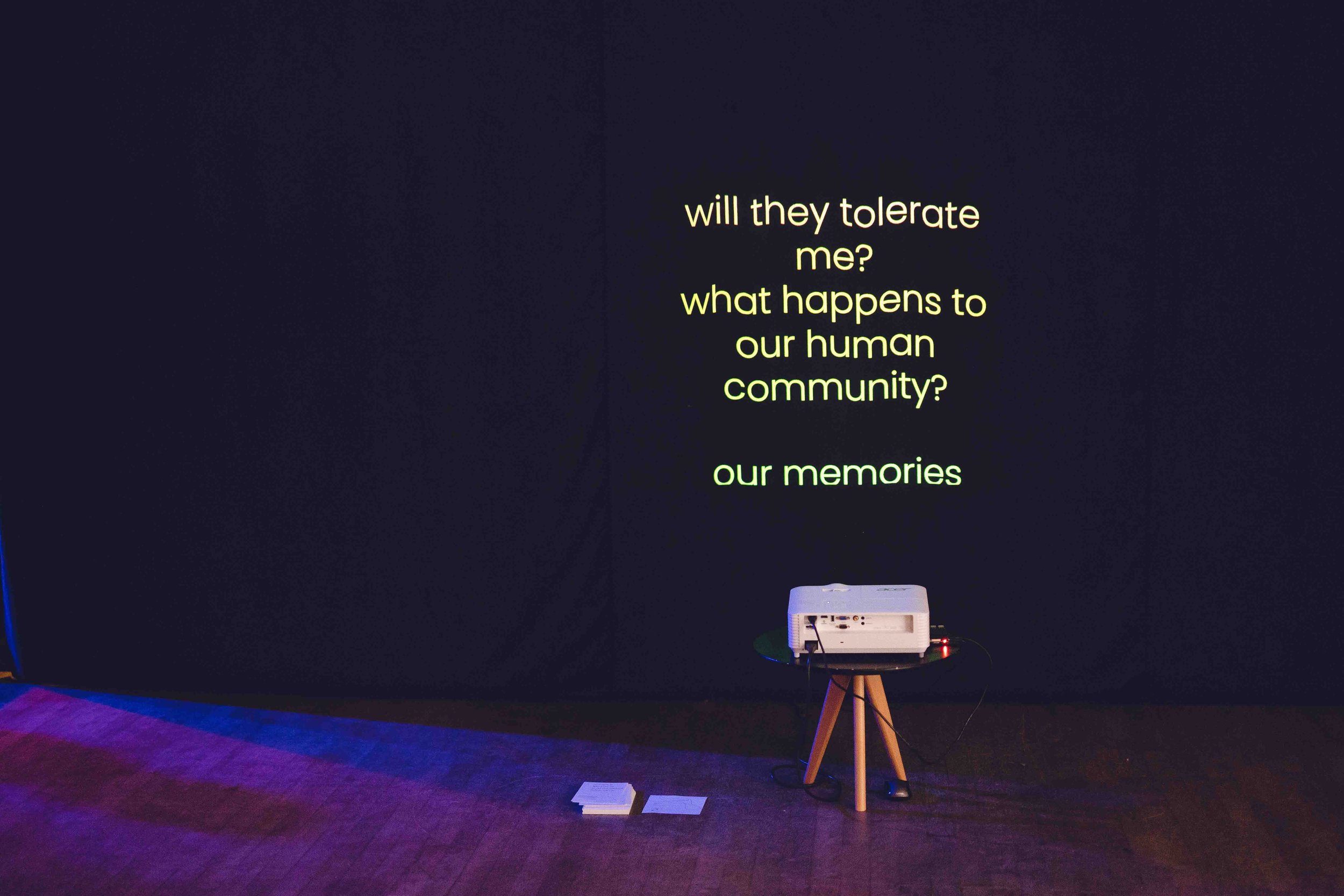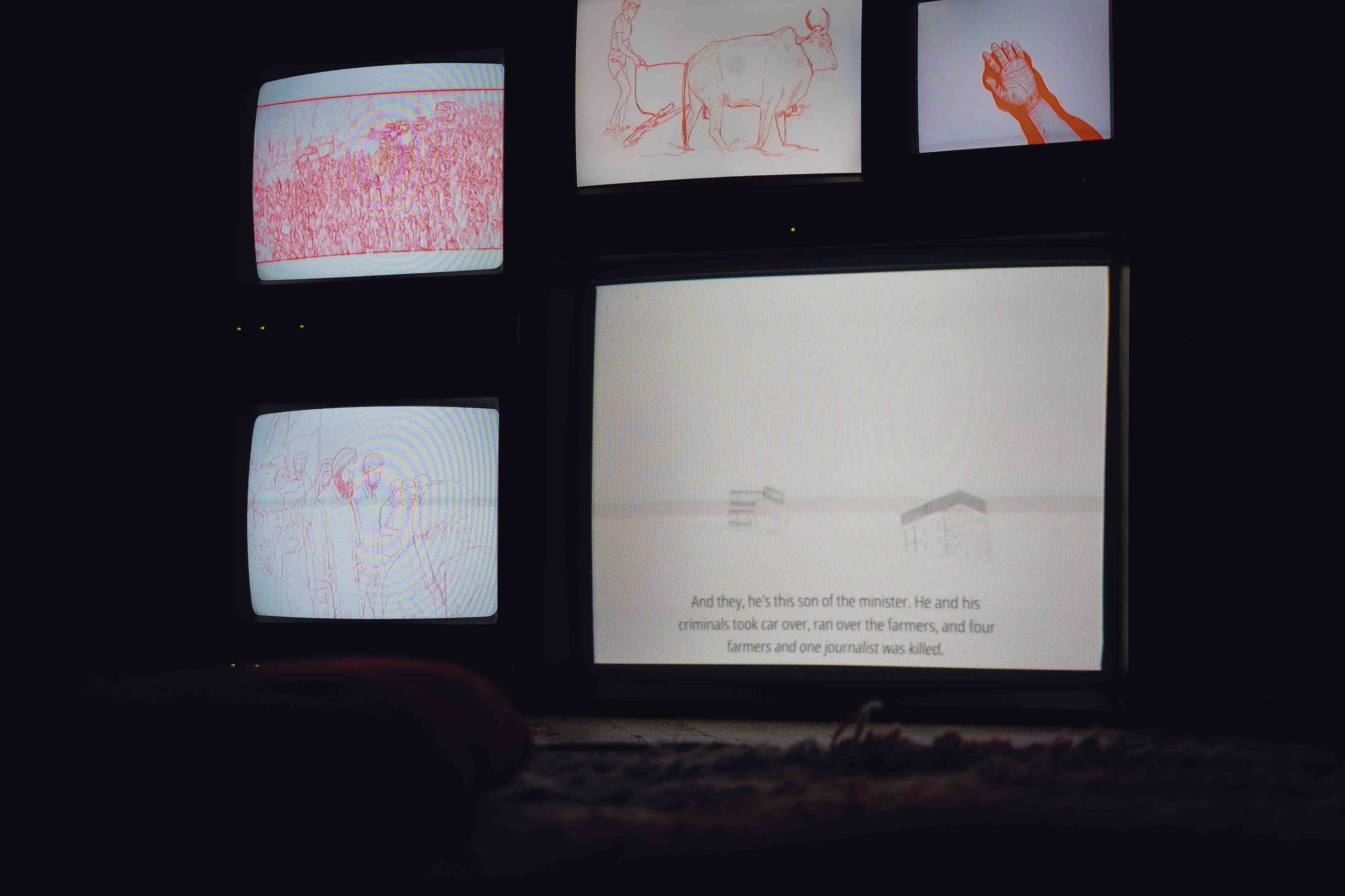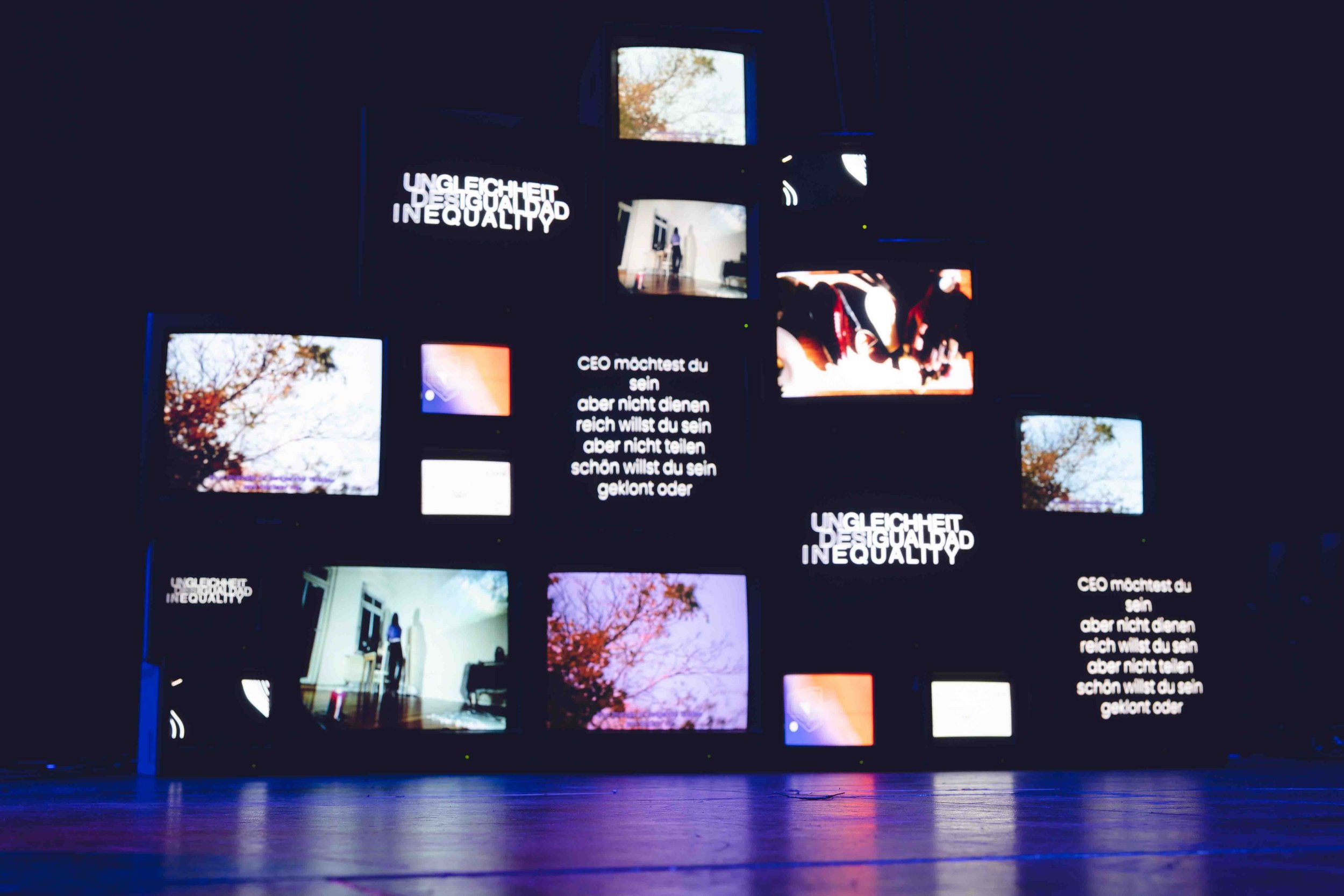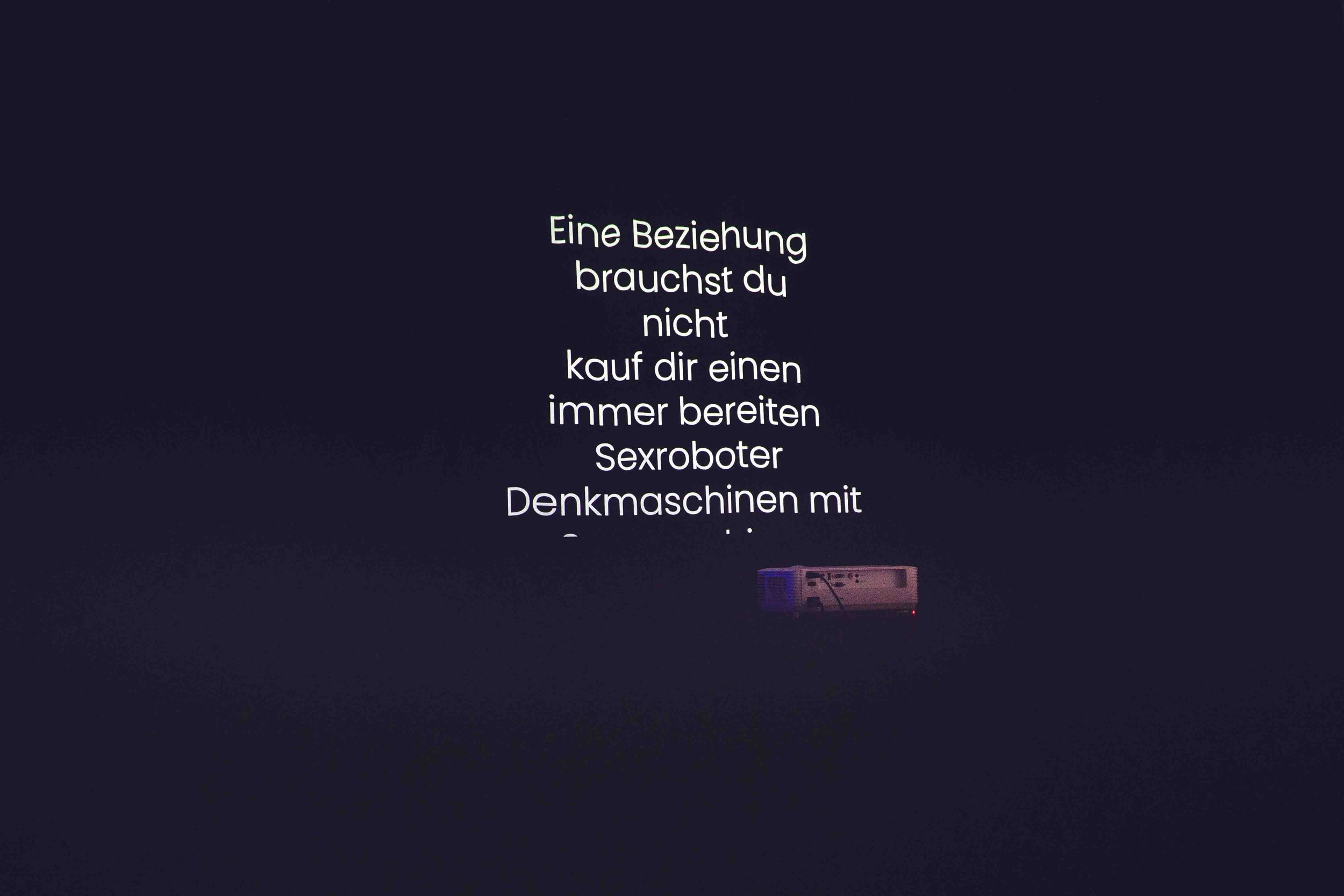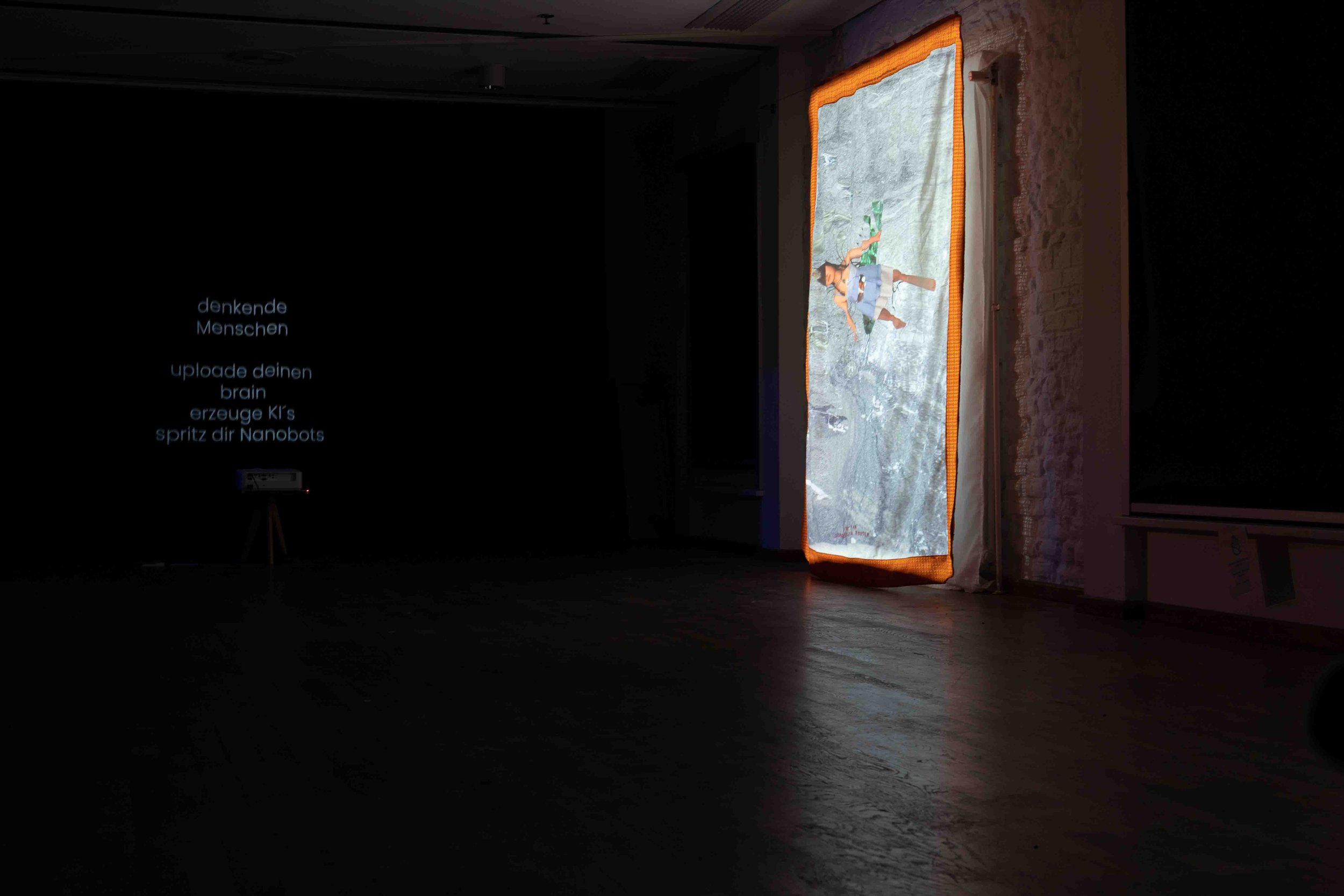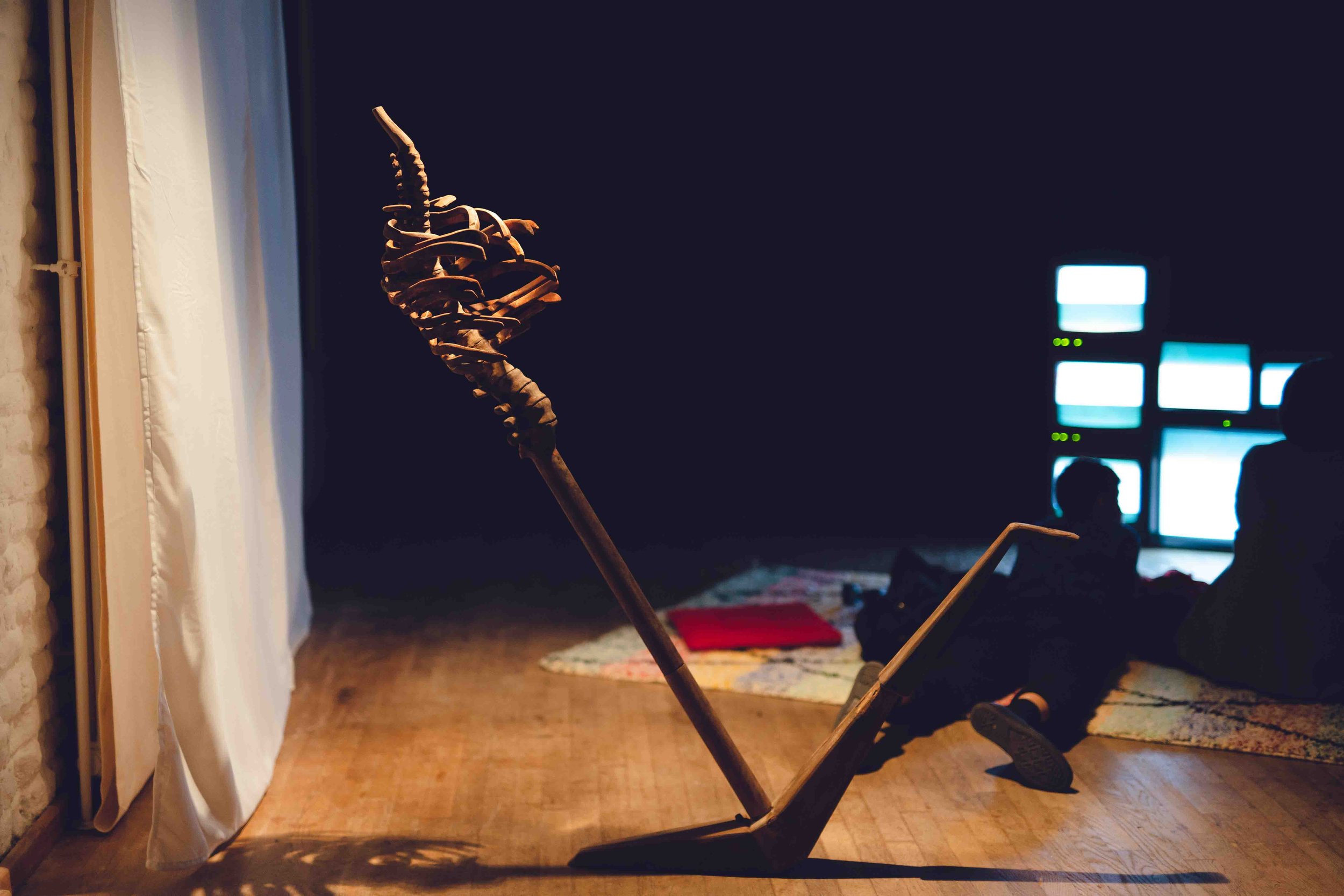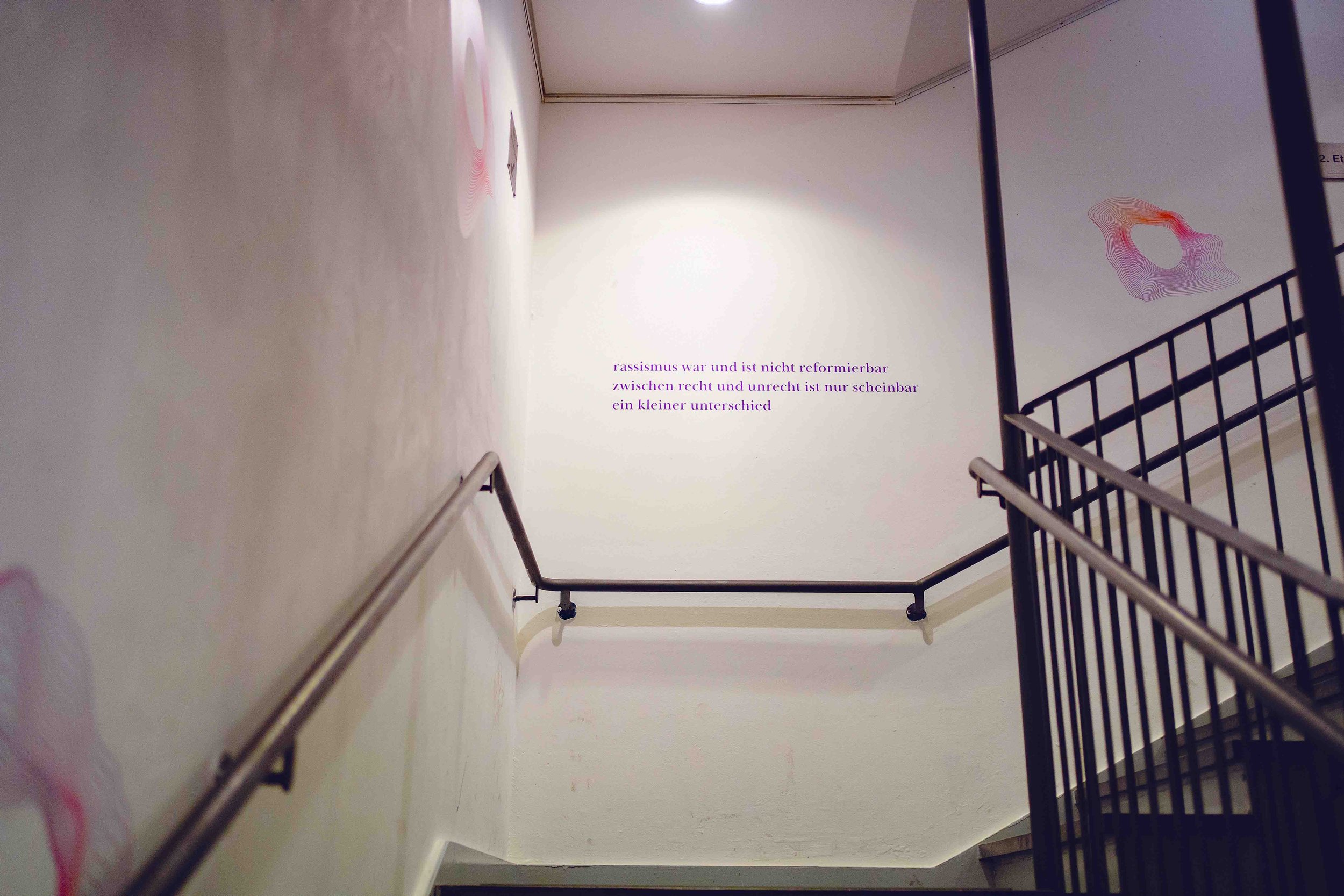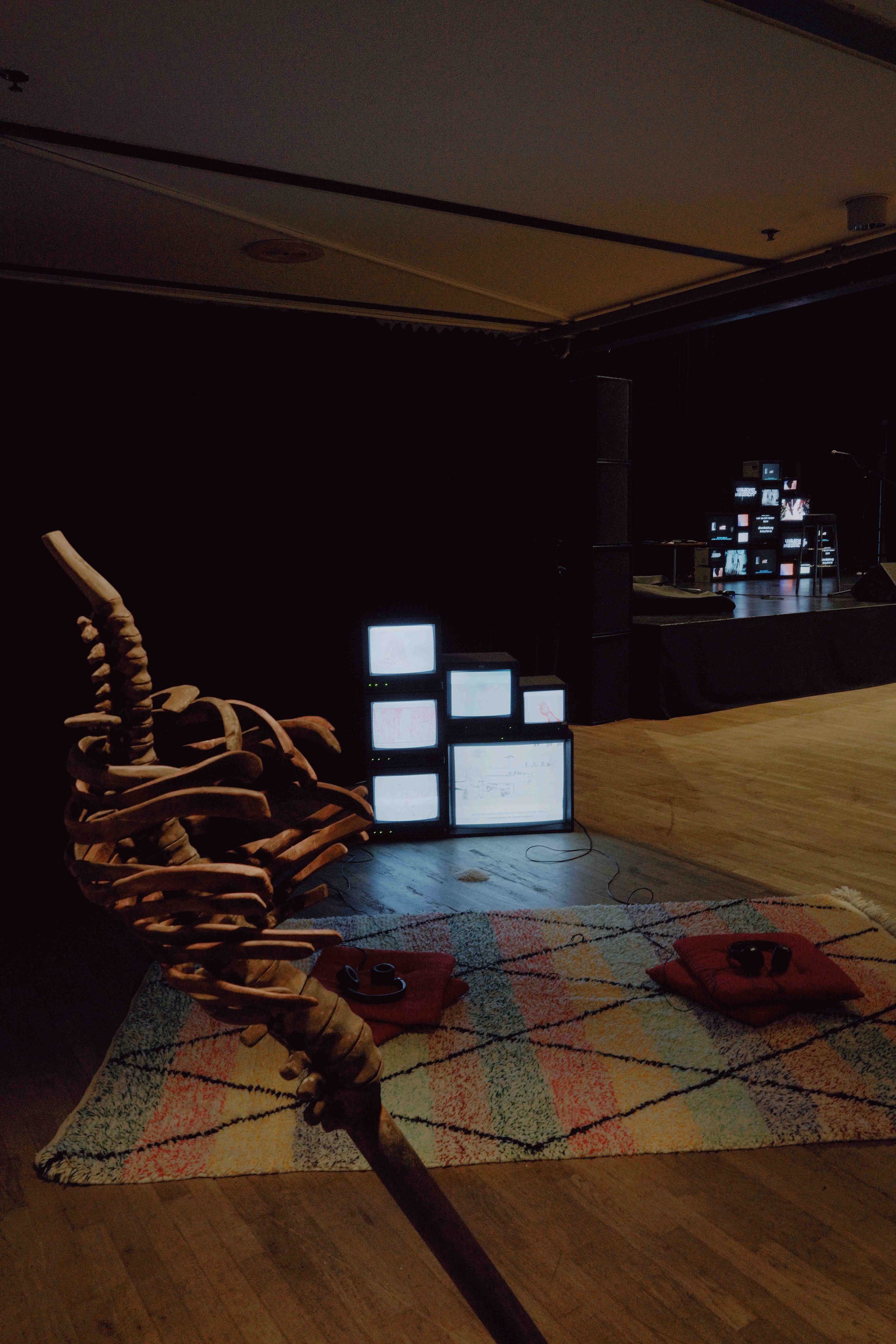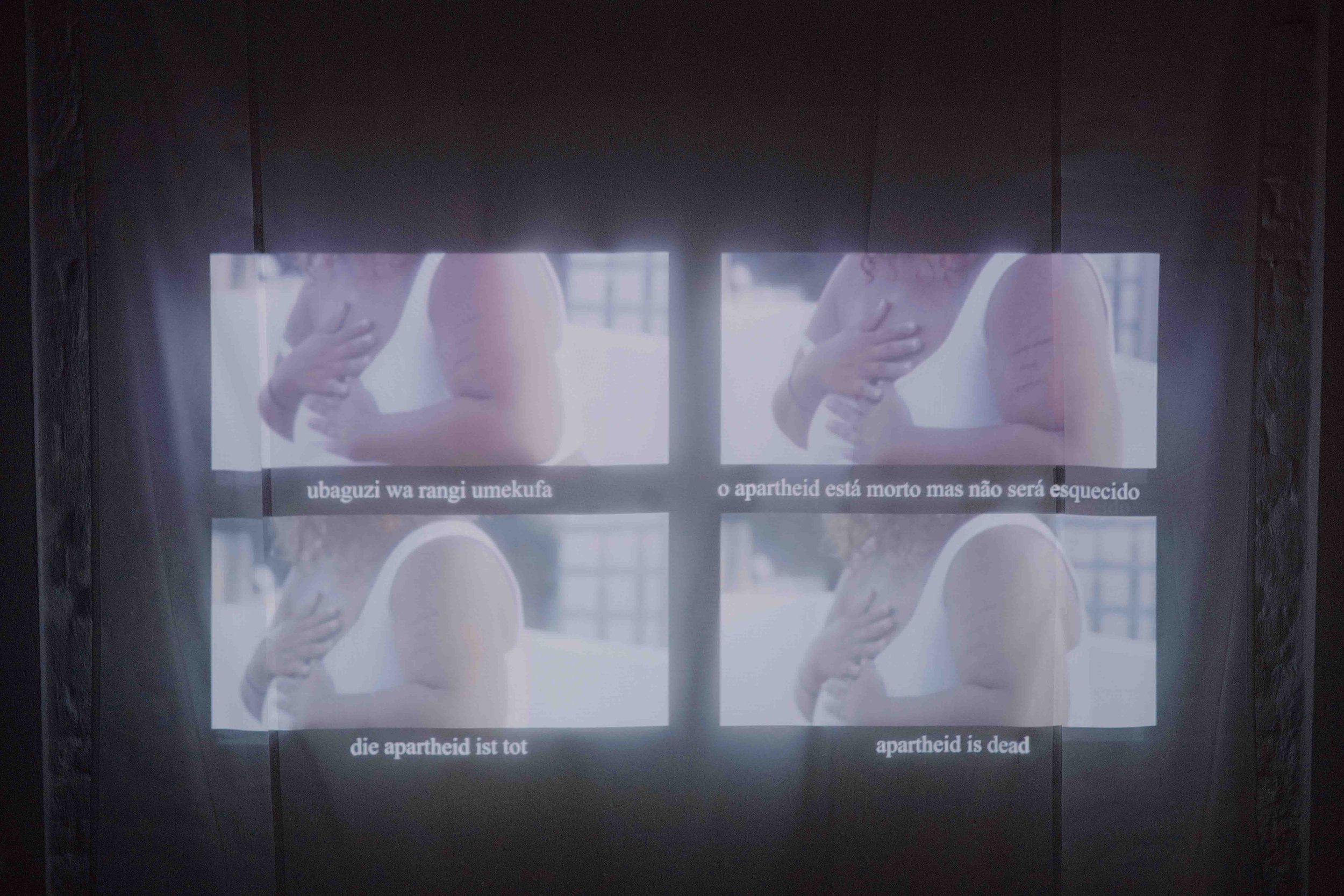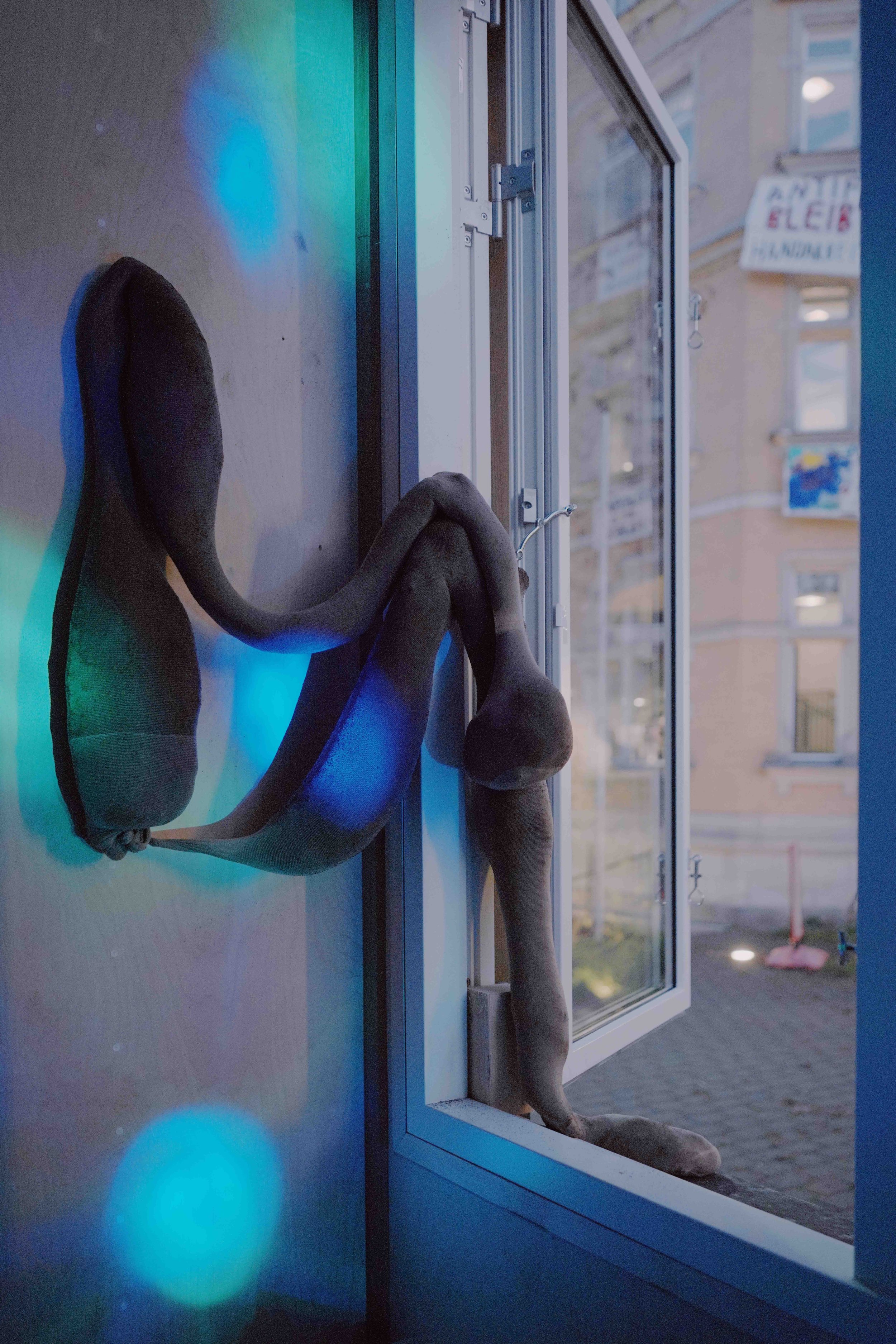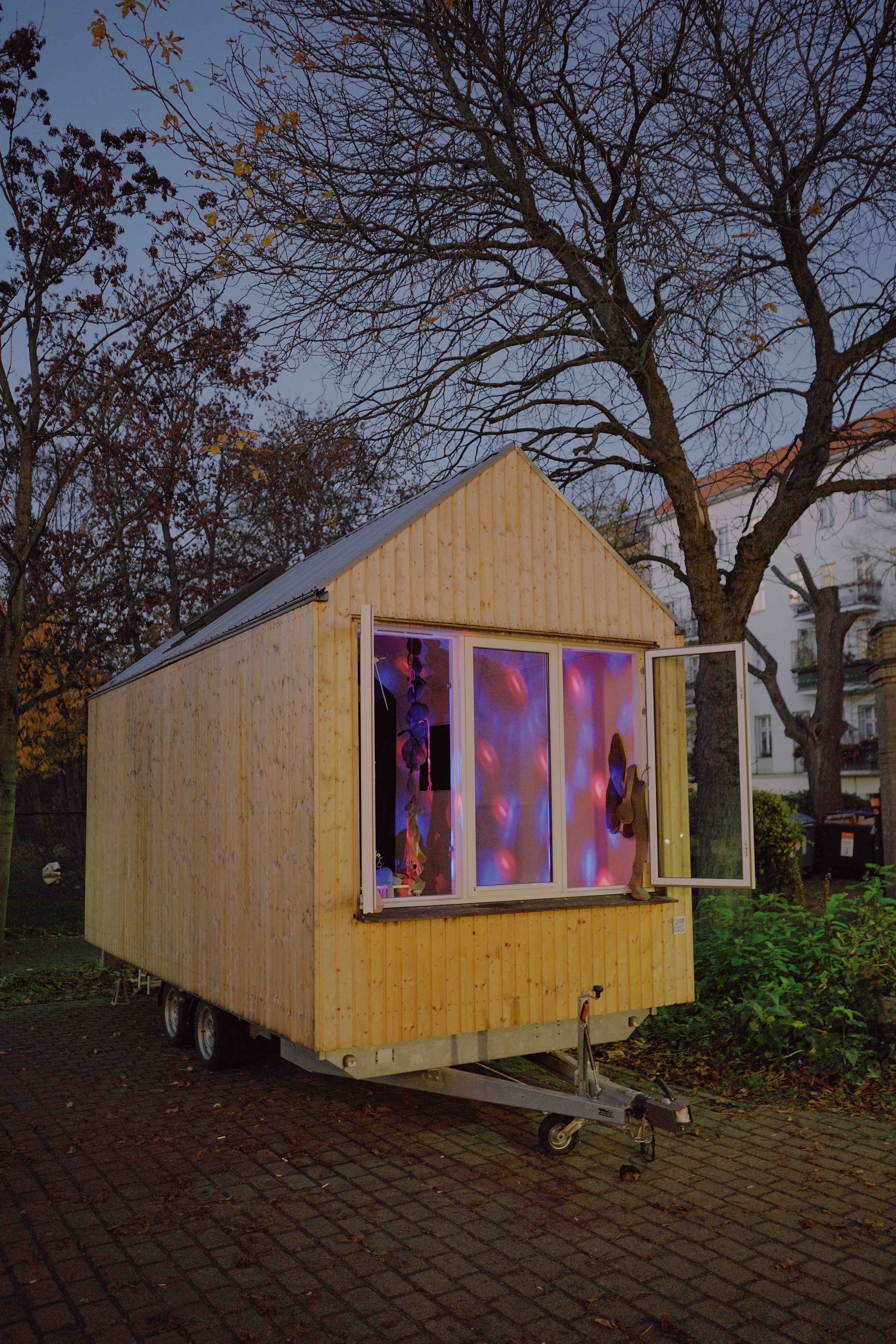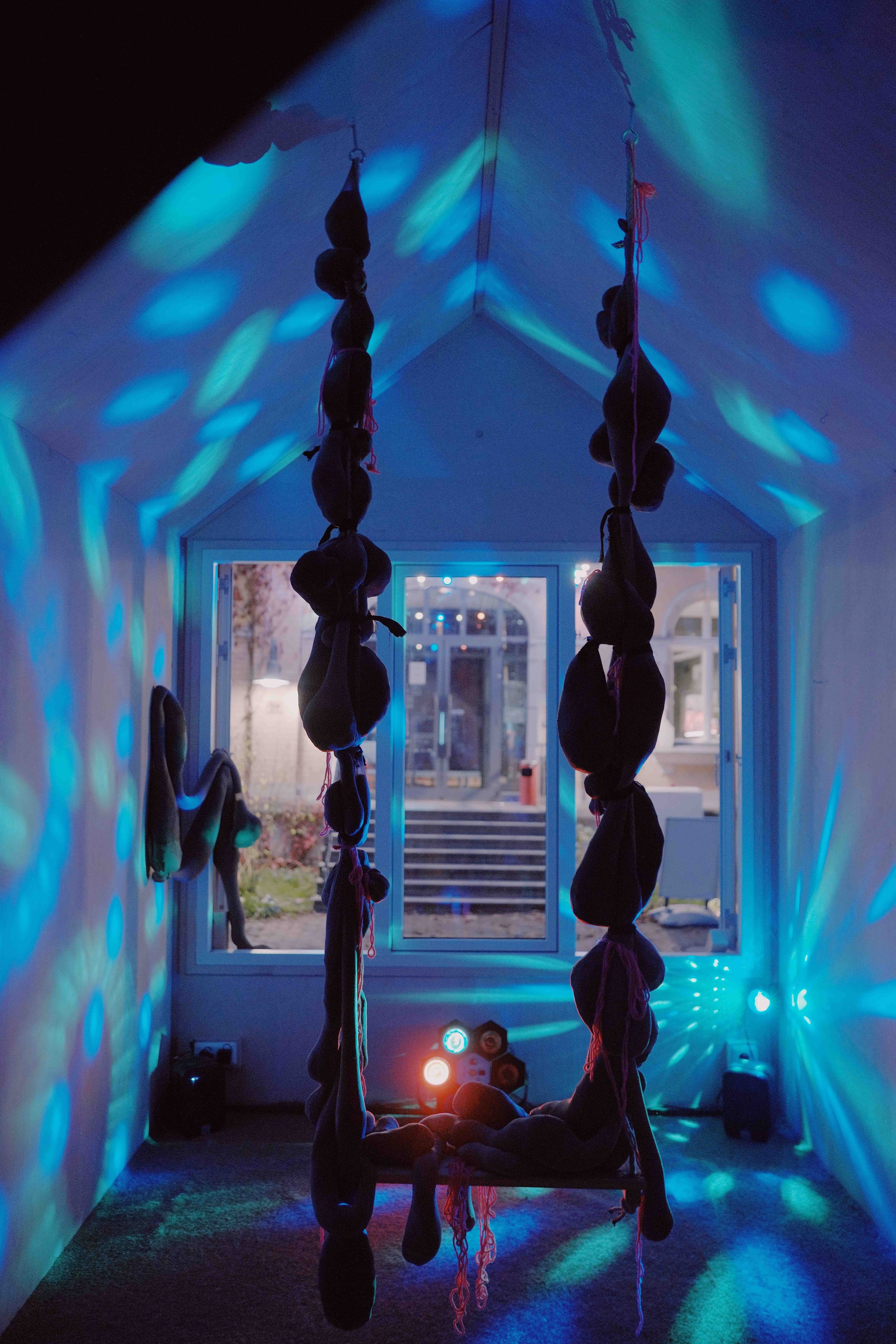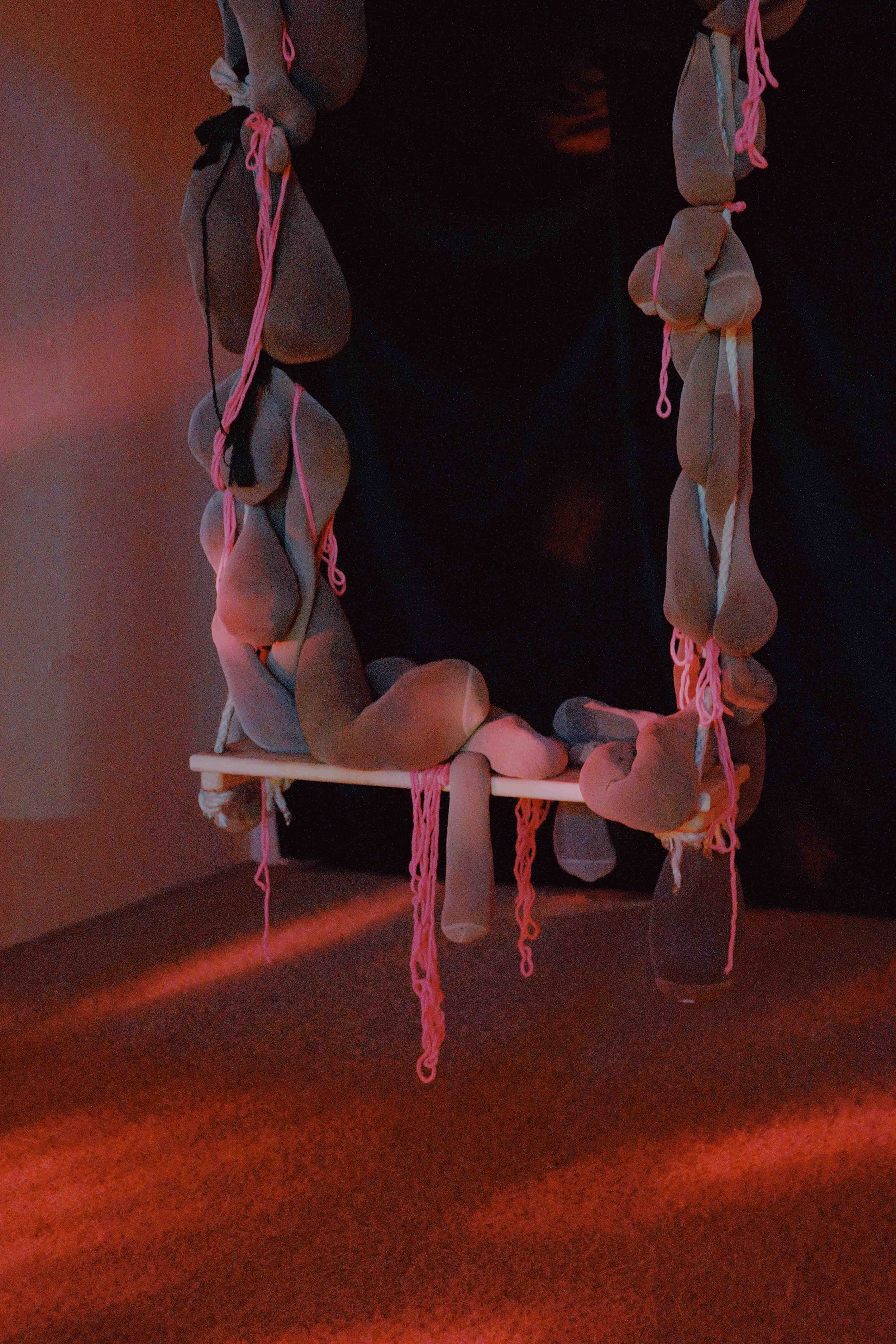Being a common term in Bengali, “rongin shagor রঙিন সাগর” translates to “colorful ocean” – the ocean as a holder of memories: Our bodies as holders of memories, which puts us in direct relation to bodies of water.
“Will you remember to keep us afloat ?” – in turn – proposes a question at the ocean that gives and takes and creates a parallel to how and who shapes memory in our world. Who stays afloat and is remembered to stay afloat? Who will be devoured by tides and forced to be forgotten?
Starting with a poem by Afro-German poet May Ayim, Oyouns new artistic intervention rongin shagor reflects on cultures of memory by exploring the reflective and generative threads of cultural formations located in the senses of the oppressed body. Retracing and reweaving these threads are the incessant tasks of cultures that faced colonialism. Collective memory emerges from language and patterns of collective memory influence language as socially and culturally shared narrative genres. The project attempts to form a constellation of remembrance by interweaving cultural responses and transnational dialogue. This multimodal space will create a rupture between voice and silence, the oral and the visual and an attempt towards the survival of the sensory cultures in the world today.
Taking the shape of a virtual artistic chain letter, rongin shagor is investigating the concept of heritage by getting others involved in the discourse of how our history shapes our actions today. A number of multidisciplinary and multilingual artists will respond to the poem “community” by May Ayim, a progressive thinker and key figure that shaped the Afro- German movement until her untimely death in 1996.
rongin shagor - the colorful ocean - hereby symbolizes the variety of poetic and artistic interpretations and inspirations that emerge from one poem. They float, embark, collide and buoy in the same place, each marking approaches to respective struggles in identity politics. Dreams, visions, and associative powers of imagination in poetry are heightened through a collective growth of individual artworks that build on each other - starting with the aforementioned poem by May Ayim. Responses to her work by interdisciplinary artists will shape rongin shagor while setting the way for further participation.
The erasure caused by coloniality with the parallel narrative during the pandemic challenges us to face realities of loss, loss of connection, loss of oral tradition, loss of ritual, loss of loved ones, loss of physical touch, loss of justice. In all this loss, there is a need to create a collective shared space, where challenges faced by different diaspora communities in Berlin and beyond are made visible and heard. This digital/online participatory project will attempt to create a hub of knowledge through art and bring it to a wider community to experience the space and get engaged in the discourses over time.
Being a mainly digital project with manifestations in the physical space, this body of work looks at the broader interactions between European nations and the societies they colonised by dealing with issues of identity, language, representation, displacement, migration, resistance and agency. The artistic responses were shared on a digital platform launching with a pop-up exhibition at Oyoun on November 2022.
TEAM:
Concept and Artistic Direction: Madhumita Nandi
Curation: Madhumita Nandi, Anja Saleh
Curatorial Assistance: Melisa Manrique
Communication: Tariq Bajwa
Design: Chhandak Pradhan
UX Design: Mark Mushiva, Rita Eperjesi
Web design: Rita Eperjesi, Zainab Tariq and Anna Eschenbacher
Web development: Zainab Tariq, Anna Eschenbacher with support from Ellina Nurmukhametova, Árpád Bencze, Malte Hillebrand, Anna Brauwers
Funding/Admin: Sophia Schmidt, Paul Räther, Nina Martin
The project “rongin shagor” is developed within the framework of "dive in. program for digital interactions" of the Kulturstiftung des Bundes, funded by the Federal Government Commissioner for Culture and the Media (BKM) in the program NEUSTART KULTUR and the Senatsverwaltung für Kultur und Europa.

